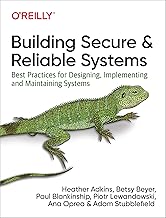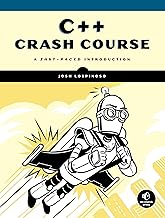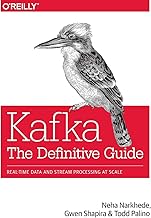
Web Scalability for Startup Engineers
Artur Ejsmont
4.8 on Amazon
6 HN comments

Building Secure and Reliable Systems: Best Practices for Designing, Implementing, and Maintaining Systems
Heather Adkins, Betsy Beyer , et al.
4.7 on Amazon
6 HN comments

Show Me the Numbers: Designing Tables and Graphs to Enlighten
Stephen Few
4.5 on Amazon
6 HN comments

Database Internals: A Deep Dive into How Distributed Data Systems Work
Alex Petrov
4.7 on Amazon
6 HN comments

Whatever It Takes: Master the Habits to Transform Your Business, Relationships, and Life
Brandon Bornancin
4.8 on Amazon
6 HN comments

Kubernetes: Up and Running: Dive into the Future of Infrastructure
Brendan Burns , Joe Beda, et al.
4.6 on Amazon
6 HN comments

Python for Kids: A Playful Introduction to Programming
Jason R. Briggs
4.6 on Amazon
6 HN comments

The Phoenix Project (A Novel About IT, DevOps, and Helping Your Business Win)
Gene Kim
4.7 on Amazon
6 HN comments

Terraform: Up & Running: Writing Infrastructure as Code
Yevgeniy Brikman
4.6 on Amazon
6 HN comments

A World Without Email: Reimagining Work in an Age of Communication Overload
Cal Newport, Kevin R. Free, et al.
4.5 on Amazon
5 HN comments

Discovering Statistics Using R
Andy Field, Jeremy Miles , et al.
4.5 on Amazon
5 HN comments

C++ Crash Course: A Fast-Paced Introduction
Josh Lospinoso
4.7 on Amazon
5 HN comments

Irresistible: The Rise of Addictive Technology and the Business of Keeping Us Hooked
Adam Alter and Penguin Audio
4.6 on Amazon
5 HN comments

Kafka: The Definitive Guide: Real-Time Data and Stream Processing at Scale
Neha Narkhede , Gwen Shapira, et al.
4.4 on Amazon
5 HN comments

The Great Reset: How Big Tech Elites and the World's People Can Be Enslaved by China CCP or A.I.
Cyrus Parsa and The AI Organization
4.5 on Amazon
5 HN comments
bcheungonMar 26, 2020
antisocialonApr 2, 2020
dankohn1onMar 23, 2019
andrewstuart2onApr 27, 2021
raesene9onAug 20, 2017
If you're interested in books on the topic, I like Kubernetes in Action (https://www.manning.com/books/kubernetes-in-action) or Kubernetes: Up and running (http://shop.oreilly.com/product/0636920043874.do)
One of the challenges with Kubernetes is that it's pretty fast moving, so it's a good idea to work with resources that are up to date. I know a last commit from May doesn't seem very old but that's going to a least be missing 1.7 and could be missing 1.6 or earlier as well.
ben_jonesonFeb 27, 2017